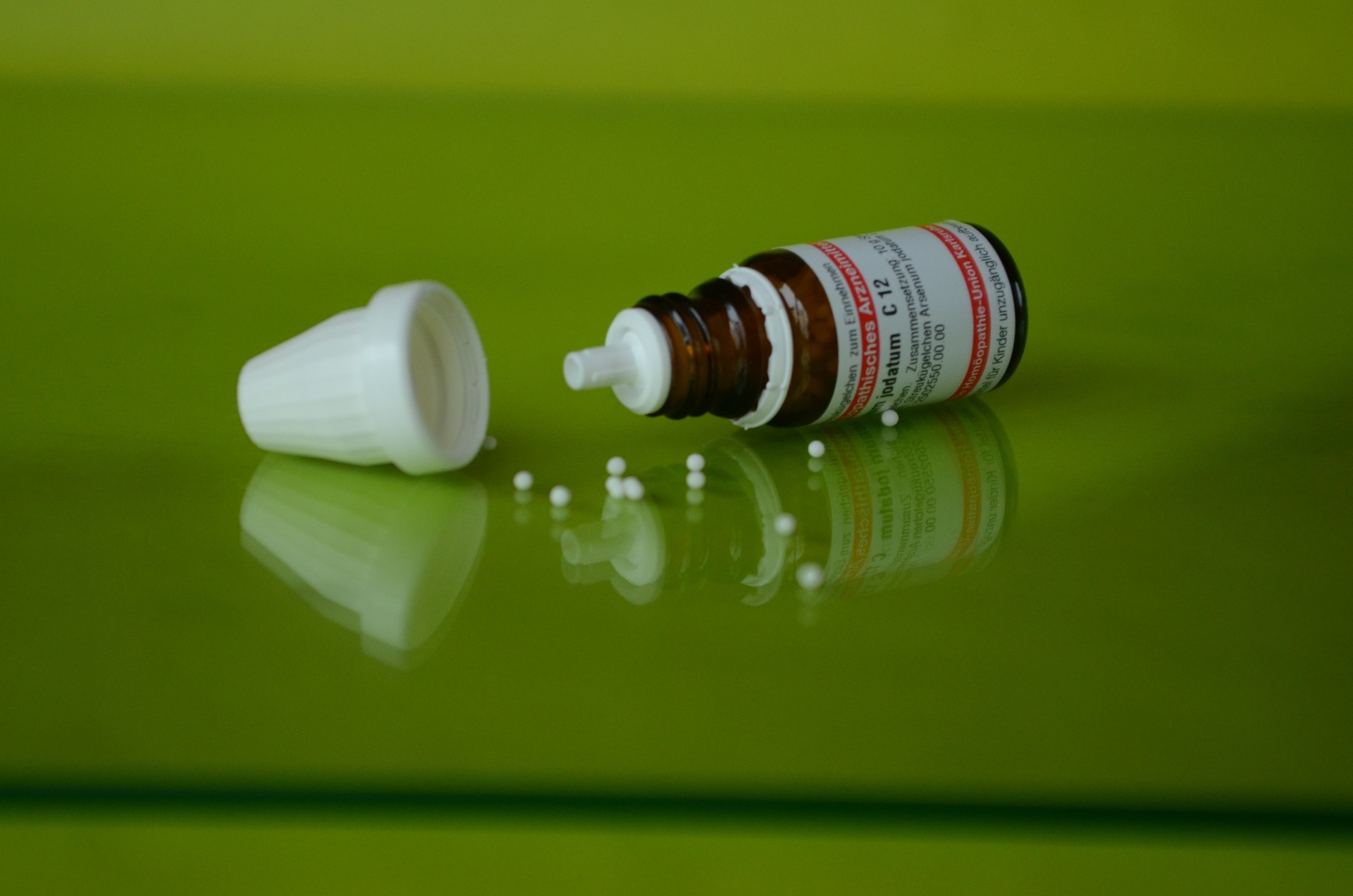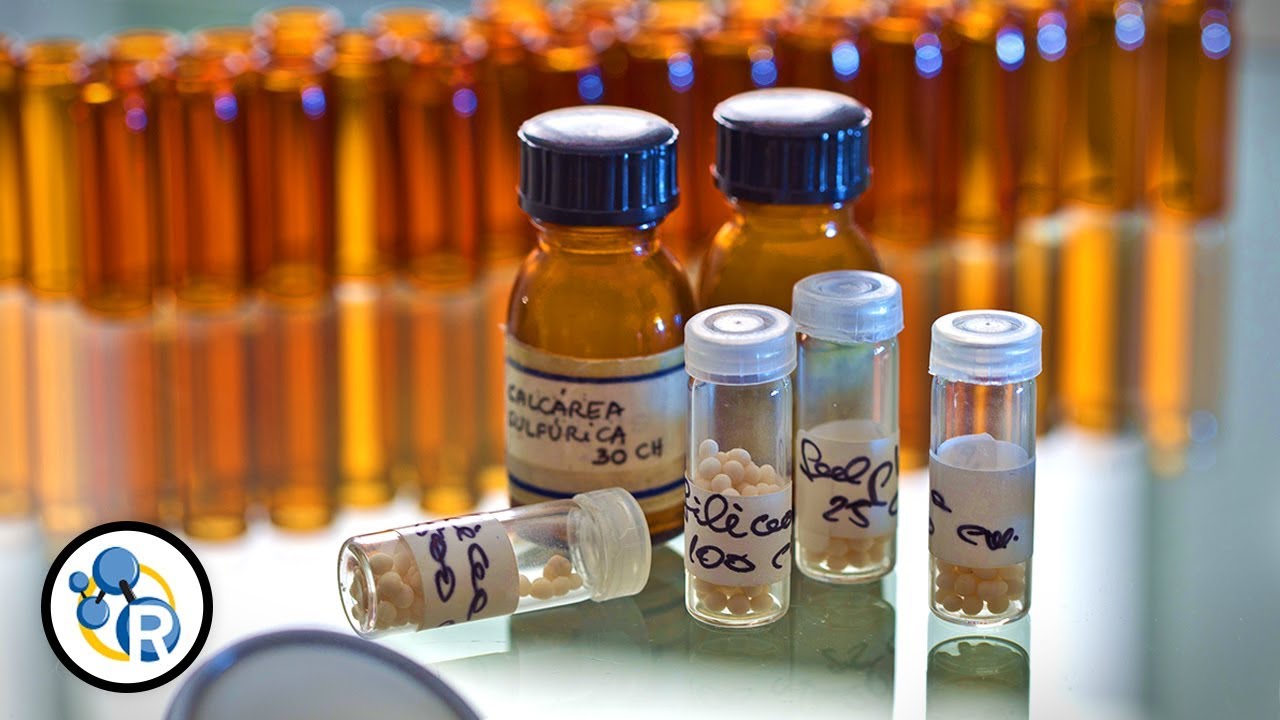The Principles Of Homeopathy Treatment And Its Benefits
Practitioners of homeopathy treatment utilize very diluted chemicals in the belief that this would stimulate the body's innate healing mechanisms. Homeopathy is a kind of alternative medicine that has been around for 200 years and promises to boost the body's own healing mechanisms.
Author:Suleman ShahReviewer:Han JuJan 31, 202349.9K Shares818.7K Views

Practitioners of homeopathy treatmentutilize very diluted chemicals in the belief that this would stimulate the body's innate healing mechanisms. Homeopathy is a kind of alternative medicine that has been around for 200 years and promises to boost the body's own healing mechanisms.
According to its proponents, it is a holistic medical approach that employs the principle of "treatment like with like." No homeopathic vaccination exists, and homeopathic remedies shouldn't be used in lieu of standard care for dangerous conditions.
Homeopaths assert that they treat the full person, factoring in the individual's personality, lifestyle, and genetic predispositions, in addition to the disease's past course. Homeopathic remedies are tailored to each patient since they are believed to stimulate the body's own healing processes.
How Homeopathy Works
Why utilize homeopathic chemicals to cure an ailment or healthissue if they also cause it? This technique boosts immunity and healing. Homeopathy emphasizes "individualized" therapybased on each patient's symptoms, history, body, and requirements. Even if two persons have the same condition, their homeopathic physicians may praise them differently according on their circumstances and predicted bodily response.
Emotions and personality are crucial in homeopathy, unlike conventional medicine. Homeopathic doctors often discuss stress, relationships, personality, family, and more with patients. Some patients require larger dosages of homeopathic medications than othersdepending on their condition. The purpose of homeopathy is to employ the lowest effective dosage of adaptogen herbs, minerals, medicinal mushrooms, or animal products.
Lab testing and patient interviews help homeopathic doctors diagnose patients. Lab tests are only as good as the patient's self-reported symptoms. The homeopathic doctor's purpose is to learn about the patient's full experience and expectations to assist "holistically" and most effectively.

Does Homeopathy Work?
Principles Of Homeopathy
Three main ideas underpin homeopathy:
- The principle that "like heals like," or the rule of similars.
- One treatment should be able to alleviate all of a patient's symptoms, whether they be physical, emotional, or mental, according to the notion of the single remedy.
- Following the "principle of the minimal dosage," one starts with a very low dose and gradually raises it.
Dangers Of Homeopathic Medicine
Although some people may have mild adverse responses (such as rashes) when using homeopathic medicines, in general, they are well tolerated. In addition, some persons have worsening of symptoms at the commencement of therapy.
Despite the extreme dilution of the treatments, interactions with other medications have not been well examined.
There are several homeopathic treatments that may be used to treat arthritis, but the optimal dose has not yet been determined. Dosage advice should be sought from a qualified homeopath or homeopathic pharmaceutical manufacturer.
Benefits Of Homeopathy Treatment
Homeopathy employs tiny quantities of natural ingredients. Alternative medicine employs little doses of an active component to cure illness. This active component causes the sickness.
Homeopathy uses mineral, plant, and animal components. Fresh or dried herbs, activated charcoal, caffeine, garlic, and stinging nettles are also employed. These chemicals are used to make ointments, pills, gels, and drops from their active components.
All Patient Factors Are Considered
Illness, according to homeopathy, is not just a collection of symptoms but rather a response to the specific circumstances of each individual patient. The "spiritual," "emotional," "mental," and "physical" symptoms of a patient are all addressed with homeopathy. We now know that a person's outlook on their own health and their potential to recover from illness is crucial, and homeopathic therapies reflect this.
Use Of Low Dose Natural Products
Homeopathic medicines are prepared not with synthetic chemicals or medications, but with natural substances like herbs and minerals. They are "soft, delicate, and strong," but are often employed in very low dosages. They seldom produce any adverse effects and have a far lower potential for addiction than prescription medicines.
Helps To Treat Allergies And Asthma
As with conventional medicine, homeopathic remedies for allergic reactions and asthmainclude administering minute doses of the precise ingredients that trigger the condition in the first place.
Eighty percent of asthma patients who got individualized, very modest "homeopathic" dosages saw considerable alleviation and improvements in symptoms during the first week of therapy, according to a study done by researchers at the University of Glasgow in Scotland.
Allergens were administered to patients in very low dosages in an effort to boost their immune systems and speed up their recoveries. The placebo group only improved around 38% of the time, far lower than the homeopathic group.
Reduce Anxiety And Depression
Sleeplessness, exhaustion, muscular pains, headaches, and gastrointestinal distress are all common symptoms of anxietyand depression. A homeopath treats both the physical and psychological signs of mental illness. Several observational studies indicated excellent findings, including high levels of patient satisfaction, when looking at the use of homeopathy for anxiety, as was discovered in a meta-analysis conducted in 2006.
More qualitative research is required to validate this conclusion, but survey results so far indicate that homeopathy is widely used to treat anxiety and provides many patients with benefits with very little risk.
Boosts Immunity
Homeopathy enhances the immune systemby recognizing substances that come into touch with the body in high amounts. Your body exhibits distressing signs in response to these components.
Your homeopathic physician will prescribe medications that release the same components in your body in minute quantities. It enables the body to produce disease-fighting antibodies, so increasing the body's resistance to the illness.
Help In Treating Chronic Diseases
Most persistent illnesses may be traced back to some kind of psychological or emotional distress. Apart from that, certain unhealed physical injuries or environmental sensitivities may also create chronic diseases.
The quality of lifefor those suffering from these conditions may decrease. The conventional treatment you've been using for these conditions, symptom suppression, has its limitations. They don't provide a permanent solution and they don't comprehend the gravity of these chronic diseases.
In order to properly diagnose your health issues, homeopathy takes into account your whole medical history. Recognizing the link between trauma history and present-day symptoms might be helpful. After determining the cause of your chronic condition, homeopathic treatment may be recommended.
Some chronic disorders may not be completely curable, despite homeopathy's high success rate in treating them. In addition, you may need conventional medical treatment.
Help In Pain Management
Studies have shown that homeopathic therapy for chronic pain may be effective without the need for invasive procedures or harmful medicines.
Forty-three individuals with persistent lower back pain were evaluated at the start and finish of an 18.5-month controlled, randomized prospective research. Patients in the experiment were given homeopathic treatment tailored to their specific symptoms. At the conclusion of therapy, statistical analysis revealed, many patients felt a considerable reduction in pain.
A Permanent Cure
Homeopathic physicians are aware that you respond to a disease-causing agent due to your susceptibility. Therefore, they introduce smaller quantities of the same disease components in a safe manner. By producing antibodies, it allows the body to raise its tolerance to disease-causing agents.
After some time, you will no longer be susceptible to infection. It is a long-term treatment that may last a year. If you suffer from kidney stones, acid reflux, or sleeplessness, you may want to consider homeopathy.
There are several other advantages of homeopathic therapy. If a family member, including a youngster, is afflicted with a condition, you may choose homeopathy as a treatment option. Yes, homeopathy is an age-appropriate treatment.
Natural, Safe, And Cost-effective
Homeopathy is natural, secure, and economical. If the appropriate medications are provided, they may aid:
- Cure the uterine and ovarian cysts
- Appendicitis
- Tonsils
- Sinusitis
- Piles
- Benign tumors
- Kidney stones
No Surgery
Homeopathy may play a crucial role in helping your body recover after surgery. However, homeopaths agree that surgery is the sole choice in extreme cases. Additionally, homeopathy is most effective in the early stages of a disease.
People Also Ask
Does Homeopathy Have Side Effects?
There was more evidence of the harmful effects of mislabeled 'homeopathic items' than of actual homeopathic medications in case reports published in mainstream medical publications. In conclusion, homeopathic medications recommended by medical experts at high dilutions are likely safe and unlikely to cause serious adverse responses.
Is Homeopathic Medicine Strong?
Despite common belief, not all homeopathic remedies marketed or labeled as such are significantly diluted and may instead contain harmfully high doses of the original active ingredient(s). There have been reports of adverse reactions to homeopathic products of this kind.
How Successful Is Homeopathic?
Homeopathy has not been shown to be useful in the treatment of any medical ailment. There are many who advocate for homeopathy and say it can protect against malaria and other ailments. There is zero proof of this, and zero logical scientific explanation for how homeopathy could ever be used as a disease preventative.
Final Words
Homeopathy, a holistic medical approach dating back to the 18th century, makes use of modest amounts of natural chemicals to stimulate the body's own healing mechanisms. A homeopath may be able to help patients who are experiencing symptoms of arthritis, allergies, asthma, anxiety, depression, or digestive difficulties.
Although several studies and clinical trials have shown that homeopathy treatment is more effective than placebos, many of these studies have had methodological issues, and more study is still required. There is little to no danger in using homeopathic treatments since they are generally safe, simple, and nonaddictive.

Suleman Shah
Author
Suleman Shah is a researcher and freelance writer. As a researcher, he has worked with MNS University of Agriculture, Multan (Pakistan) and Texas A & M University (USA). He regularly writes science articles and blogs for science news website immersse.com and open access publishers OA Publishing London and Scientific Times. He loves to keep himself updated on scientific developments and convert these developments into everyday language to update the readers about the developments in the scientific era. His primary research focus is Plant sciences, and he contributed to this field by publishing his research in scientific journals and presenting his work at many Conferences.
Shah graduated from the University of Agriculture Faisalabad (Pakistan) and started his professional carrier with Jaffer Agro Services and later with the Agriculture Department of the Government of Pakistan. His research interest compelled and attracted him to proceed with his carrier in Plant sciences research. So, he started his Ph.D. in Soil Science at MNS University of Agriculture Multan (Pakistan). Later, he started working as a visiting scholar with Texas A&M University (USA).
Shah’s experience with big Open Excess publishers like Springers, Frontiers, MDPI, etc., testified to his belief in Open Access as a barrier-removing mechanism between researchers and the readers of their research. Shah believes that Open Access is revolutionizing the publication process and benefitting research in all fields.

Han Ju
Reviewer
Hello! I'm Han Ju, the heart behind World Wide Journals. My life is a unique tapestry woven from the threads of news, spirituality, and science, enriched by melodies from my guitar. Raised amidst tales of the ancient and the arcane, I developed a keen eye for the stories that truly matter. Through my work, I seek to bridge the seen with the unseen, marrying the rigor of science with the depth of spirituality.
Each article at World Wide Journals is a piece of this ongoing quest, blending analysis with personal reflection. Whether exploring quantum frontiers or strumming chords under the stars, my aim is to inspire and provoke thought, inviting you into a world where every discovery is a note in the grand symphony of existence.
Welcome aboard this journey of insight and exploration, where curiosity leads and music guides.
Latest Articles
Popular Articles